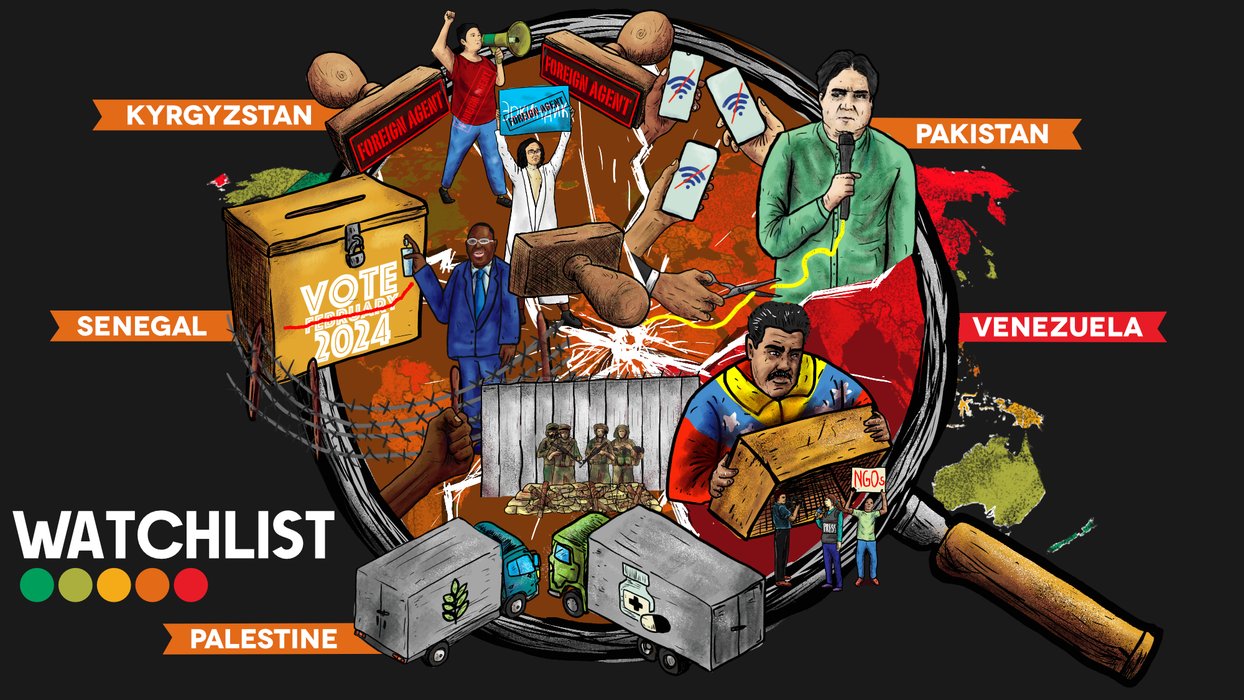FAQs
Frequently Asked Questions
What is the criteria for a country being added to the watchlist?
The CIVICUS Monitor Watchlist draws attention to countries where there has been a rapid decline in the respect of civic freedoms (especially freedom of speech, freedom of assembly and freedom of association). We view the civic space conditions to be worsening as a result of ongoing and developing restrictions which are either affecting civil society at large in the country, or specific cohorts of activists, journalists and civil society organisations.
How does the shortlist of countries get decided?
To select countries for the CIVICUS Monitor Watchlist, CIVICUS draws on its extensive networks of members, partners and data generated through the CIVICUS Monitor. As a research collaboration between 20+ research partners, the CIVICUS Monitor benefits from a variety of data sources to shortlist countries for the CIVICUS Monitor Watchlist. These include, quantitative civic space scores, latest top violations in the country, intel from latest country updates and reflections from research experts on the ground. We use a variety of these data points to identify countries where there has been a rapid decline in respect for civic space.
How often is the watchlist updated?
Roughly every 3-4 months. The list typically coincides with meetings at the Intergovernmental level where the Monitor research consortium can present our concerns and findings to the Human Rights Council, UN experts and international agencies.
When countries are removed from the list, it does not necessarily mean there has been an improvement in civic space conditions. There are many instances where the deterioration in rights has continued.
What are the objectives of having a civic space watchlist?
The CIVICUS Monitor Watchlist aims to mobilise CIVICUS’ global network of members and supporters in advocacy. Through our work we hope to provide solidarity to our members on the ground and complement their advocacy efforts at the national level. As a global alliance, we use international spaces to hold states to account for their non-compliance with their human rights obligations to protect and respect civic freedoms. In doing so, the Watchlist aims to bridge the local with the global by opening closing spaces for civil society operation and participation.
